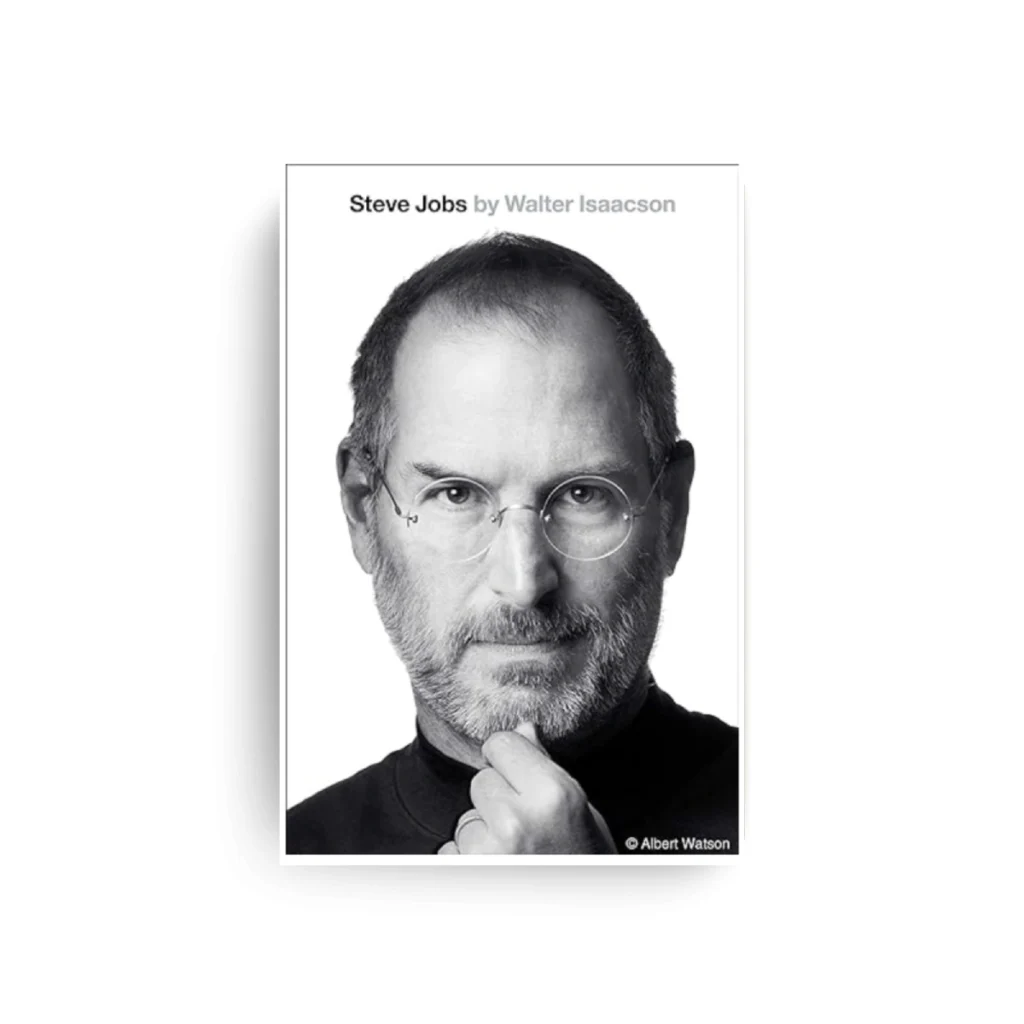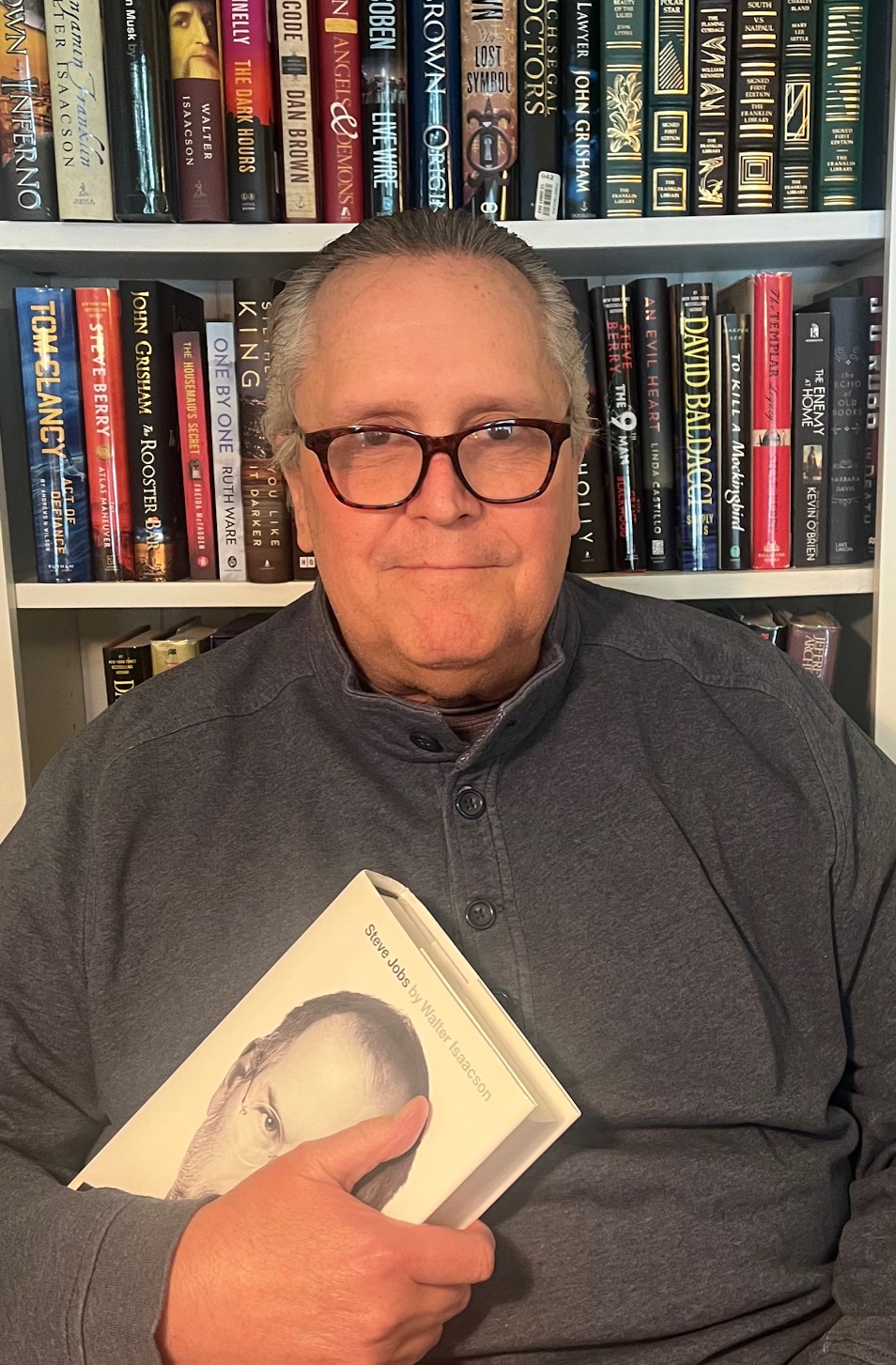Author: Walter Isaacson
Publisher: Simon & Schuster (2011)
Print Length: 630 Pages
It’s been awhile since I read Steve Jobs so I went back to read it again in preparation for this review. Oh, where do we even begin? Walter Isaacson’s biography of Steve Jobs is, quite honestly, one of those books that grabs you by the collar and demands your attention. Whether you’re a tech enthusiast, a creative thinker, or someone who’s just curious about the man behind Apple’s iconic logo, this book has something for everyone. That said, it’s not without its flaws, and I am here to break it all down for you. Let’s dive in!
The Good: A Front Row Seat to Genius
One of the best parts of Steve Jobs is how thoroughly researched it is, a hallmark of Isaacson’s biographies. Isaacson had unprecedented access to Jobs himself, his family, friends, colleagues, and even rivals. The result? A detailed, nuanced portrait of a man who was equal parts visionary genius and, well, a deeply flawed human being.
The storytelling is gripping. Isaacson doesn’t sugarcoat anything, which makes for a raw and honest narrative. From Jobs’ early days tinkering with computers in his parents’ garage to his triumphant return to Apple and the creation of the iPhone, the book reads like a movie. You feel the highs, the lows, and the sheer intensity of Jobs’ life.
But what really stands out is how Isaacson captures the duality of Jobs’ personality. He was a man who could be incredibly inspiring one moment and utterly exasperating the next. For example, the book dives into his infamous “reality distortion field,” a term used by his colleagues to describe his ability to convince people that the impossible was possible. It’s fascinating to see how this trait simultaneously drove Apple to innovate and pushed people to their breaking points.
The book also does a fantastic job of contextualizing Jobs’ work within the broader tech landscape. You don’t just learn about Apple products; you learn why they mattered and how they changed the world. Whether it’s the Macintosh, the iPod, or the iPhone, Isaacson makes you appreciate the sheer impact of Jobs’ vision.
The Flaws: Genius or Tyrant?
While the book does a great job of presenting an unvarnished look at Jobs, sometimes it feels a bit too focused on his flaws. Don’t get me wrong – Jobs was far from perfect, and it’s important to acknowledge that. He could be arrogant, dismissive and downright cruel, and he didn’t take showers very often. But at times, Isaacson seems to dwell on these traits to the point where it overshadows the more positive aspects of his personality.
For example, there are countless anecdotes about Jobs berating employees, throwing tantrums, or refusing to acknowledge his first daughter, Lisa. While these stories are important, they can feel repetitive after a while. You start to wonder: Was there nothing else going on in this man’s life? It would’ve been nice to see more exploration of his softer side – his love for art, his spirituality, or his relationships outside of work.
Another critique is that the book occasionally veers into hero-worship territory, especially when discussing Jobs’ creativity and vision. Yes, he was a genius, but he wasn’t a lone genius. Apple’s success was built on the backs of many talented individuals, and while Isaacson does mention people such as Steve Wozniak and Jony Ive, they sometimes feel like supporting characters in the grand narrative of Jobs’ life. A little more credit to the team wouldn’t have hurt.
The Writing Style: A Mixed Bag
Now let’s talk about Isaacson’s writing style. For the most part it’s engaging and accessible. He has a knack for breaking down complex concepts (like the inner workings of a computer or the design philosophy behind the iPhone) into language anyone can understand. This makes the book a breeze to read, even if you’re not super tech-savvy.
That said, the writing can occasionally feel a bit dry or formulaic. Isaacson tends to stick to a chronological structure, which makes sense for a biography, but it doesn’t always lend itself to the most compelling storytelling. There are moments when the pacing drags, especially in the middle sections of the book. You might find yourself skimming through parts that feel a bit too detailed or repetitive.
The Legacy of Steve Jobs
One of the most compelling aspects of the book is how it forces you to wrestle with some big questions: What does it mean to be a great leader? Can you be both a visionary and decent human being? Is perfection worth pursuing at all costs? Theses are questions that don’t have easy answers, and Isaacson doesn’t try to provide them. Instead, he leaves you to draw your own conclusions about Jobs and what his life means in the grand scheme of things.
For me, the biggest takeaway is that Jobs was a deeply complex individual who defied easy categorization. He wasn’t a saint, and he wasn’t a villain. He was just…Steve Jobs. Brilliant, flawed, and utterly unforgettable.
Final Verdict
So, would I recommend Steve Jobs by Walter Isaacson? Absolutely. It’s a must-read for anyone who wants to understand the man who shaped the modern tech world. But go in with your eves open. This isn’t a feel good story about a perfect hero. It’s a messy, complicated portrait of a man who changed the world, for better or for worse.
My rating is a sold 4.5 out of 5. It’s not perfect, but then again, neither was Steve Jobs. And maybe that’s the point.
What about you? Have you read it? Let me know what you think. I’d love to hear your thoughts.







